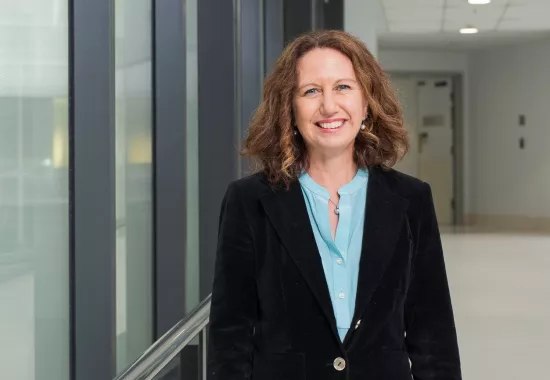While a large share of the community experiences osteoarthritis, many people are not receiving the latest, evidenced-based care leaving them with poorer and more painful outcomes.
Health and government bodies are working to address the shortfall, investing resources to increase awareness of high-value care.
As part of this national approach, Kolling Institute researcher and physiotherapist Dr Jillian Eyles has received a prestigious $660,000 NHMRC investigator grant to promote best-practice osteoarthritis care.
Dr Eyles said we know that the first-line approach for osteoarthritis involves non-surgical treatments based on education, self-management, exercise and weight control.
“This approach works well for many people and is consistently recommended by the clinical guidelines, and yet 64 per cent of people with osteoarthritis are not offered these treatments,” she said.
“We can see there are many barriers to delivering the best care from a lack of knowledge and skills of health professionals to traditional referral pathways.
“There is an urgent need to reduce the use of treatments that are not recommended such as unnecessary surgical procedures, and we will be working with surgeons to gain a better understanding around the existing pathways.
“As part of this grant, we will also be looking at new ways to educate and train the health workforce to deliver best-evidence care, and we’ll be working to improve the uptake of programs which offer best-evidence models of care.
“This will involve phasing-out low-value osteoarthritis treatments which should no longer be used.
“A large amount of research has made considerable progress in recent years, and its crucial that this new advice and understanding of the joint disease is broadly incorporated into both the hospital and community settings.
“More than eight per cent of Australians lives with osteoarthritis, so it’s important everyone has good access to the best available advice and treatment.”
